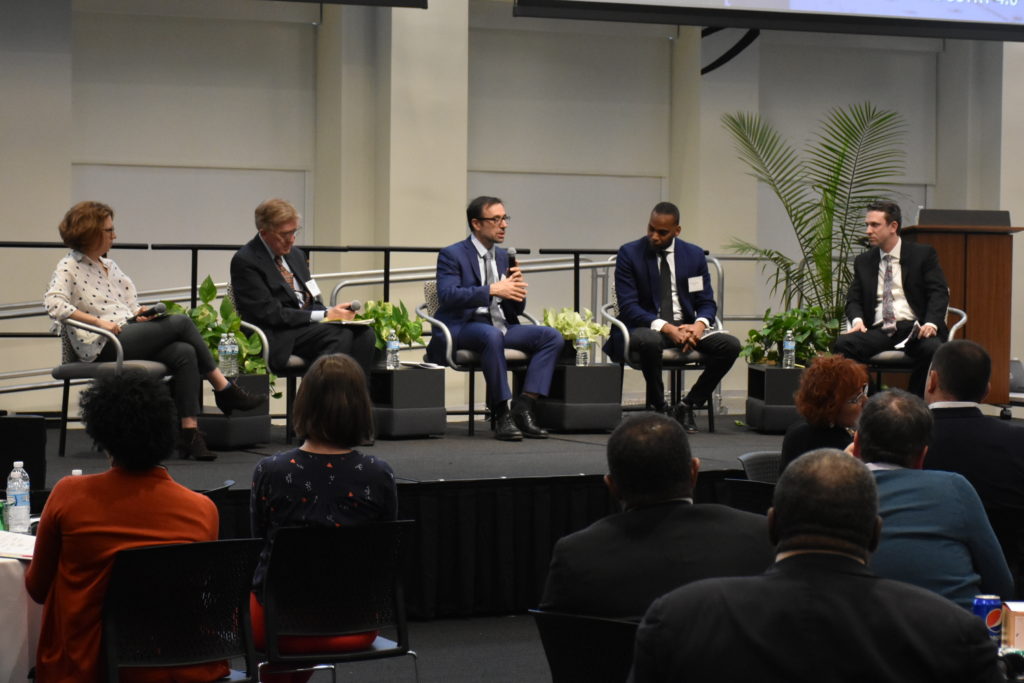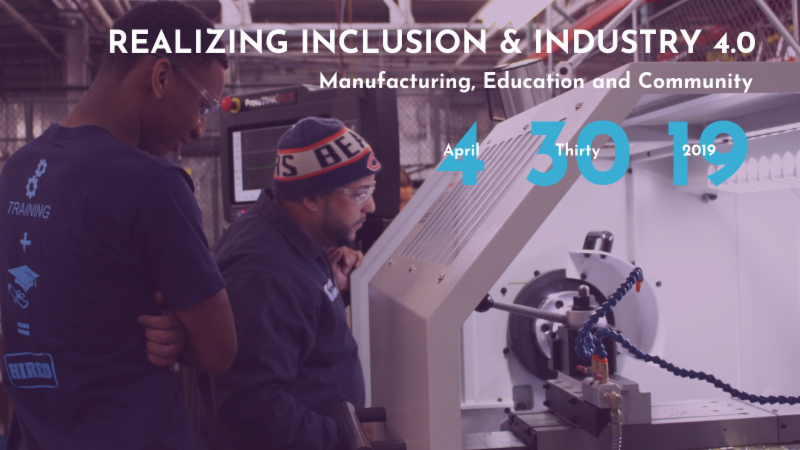Realizing Inclusion and Industry 4.0 Recap
On Tuesday, April 30th, over 150 people attended the Realizing Inclusion and Industry 4.0 conference at the Chicago Teachers Union Foundation (CTUF). The Chicagoland Manufacturing Renaissance Council (CMRC) presented the question of how can Chicagoland ensure its leadership role in technological advancement and at the same time develop its talent from within, particularly from under-resourced communities?
CRMC invited the Vocational Education for the Basque Country, Spain where they have been leaders in addressing this issue in a sustainable and green way where the entire community benefits from the growth of community-based ownership manufacturing companies.
Click here to view the Realizing Inclusion and Industry 4.0 Program Booklet
Highlights:
- Dan Swinney, Manufacturing Renaissance Executive Director, opened the day by providing a quick overview presentation on Industry 4.0 and industrial policy, as a prelude to the keynote address. Dan stressed the ripple effect of manufacturing as a sector that lifts all boats and its social potential in providing family-sustaining jobs for underserved communities.
- Keynote address by Jorge Arévalo, Deputy Minister of Vocational Education for the Basque Country, on the Basque’s approach towards workforce development and education. The Basque Country is an autonomous community in the Northern region of Spain. With numbers similar to those of Germany, its industry generates 29.9% of its GDP, 26.3% represented by manufacturing. It’s Center for Vocational Education, Tknika, is reforming its educational system to embrace Industry 4.0 and create a strategic system for preparing the workforce for the future of global manufacturing.
- Two representatives from Tknika gave additional insight particularly around its Center for Vocational Education and Innovation and its Center for Biosciences and Sustainability. Both include in their methodological method technical, soft and social skills. They provide services to small and medium-sized businesses around manufacturing, automotive, renewable energy, automation, and creative industry.
- Two panels on local and national efforts promoting manufacturing and workforce training programs. Craig Freedman represented Freedman Seating Company, a Humboldt Park-based manufacturer that is celebrating its 125 years in business. Freedman Seating employs 900 people and relies on organizations like Manufacturing Renaissance, Business and Career Services, The Safer Foundation and JARC to find fresh talent. There was also Montez King, Executive Director of the National Institute for Metalworking Skills (NIMS), and Andy Stettner, Senior Fellow at The Century Foundation. Both echoed the Basque Country in emphasizing how training must pair the technology and the talent population.

“Sometimes we have this idea that as technology advances we are not going to need workers anymore. But I’m hearing something different at this conference and it squarely involves inclusion.”
Andrew Stettner, Senior Fellow,The Century Foundation
Primary Take Away: to increase an economy’s competitiveness, the system needs to shift from a perspective based on productivity to a perspective based on the human condition. Future success will depend on the individual capacity to adapt at any time in the workforce. Skills such as intuition and creativity will guide the future.
